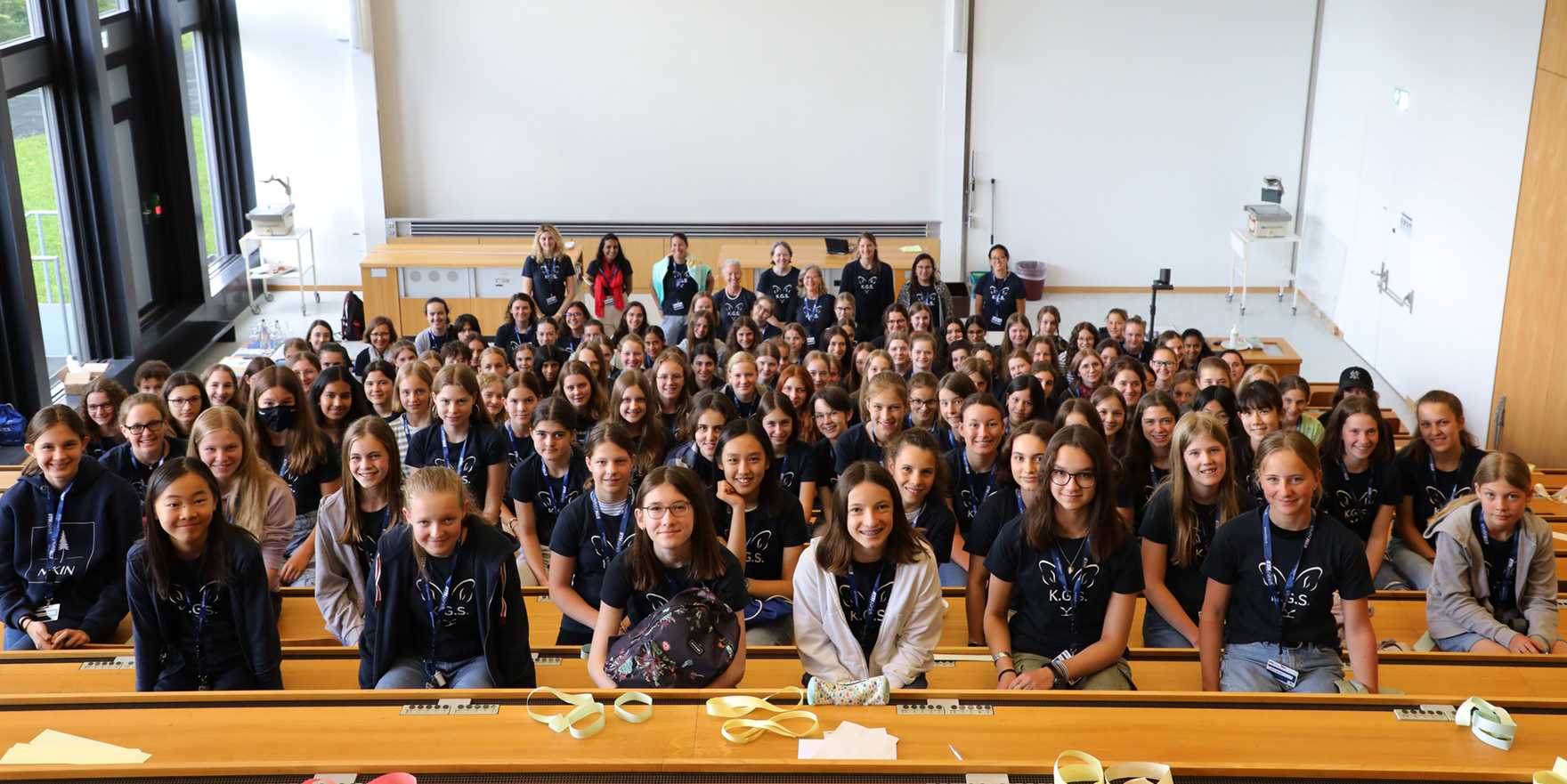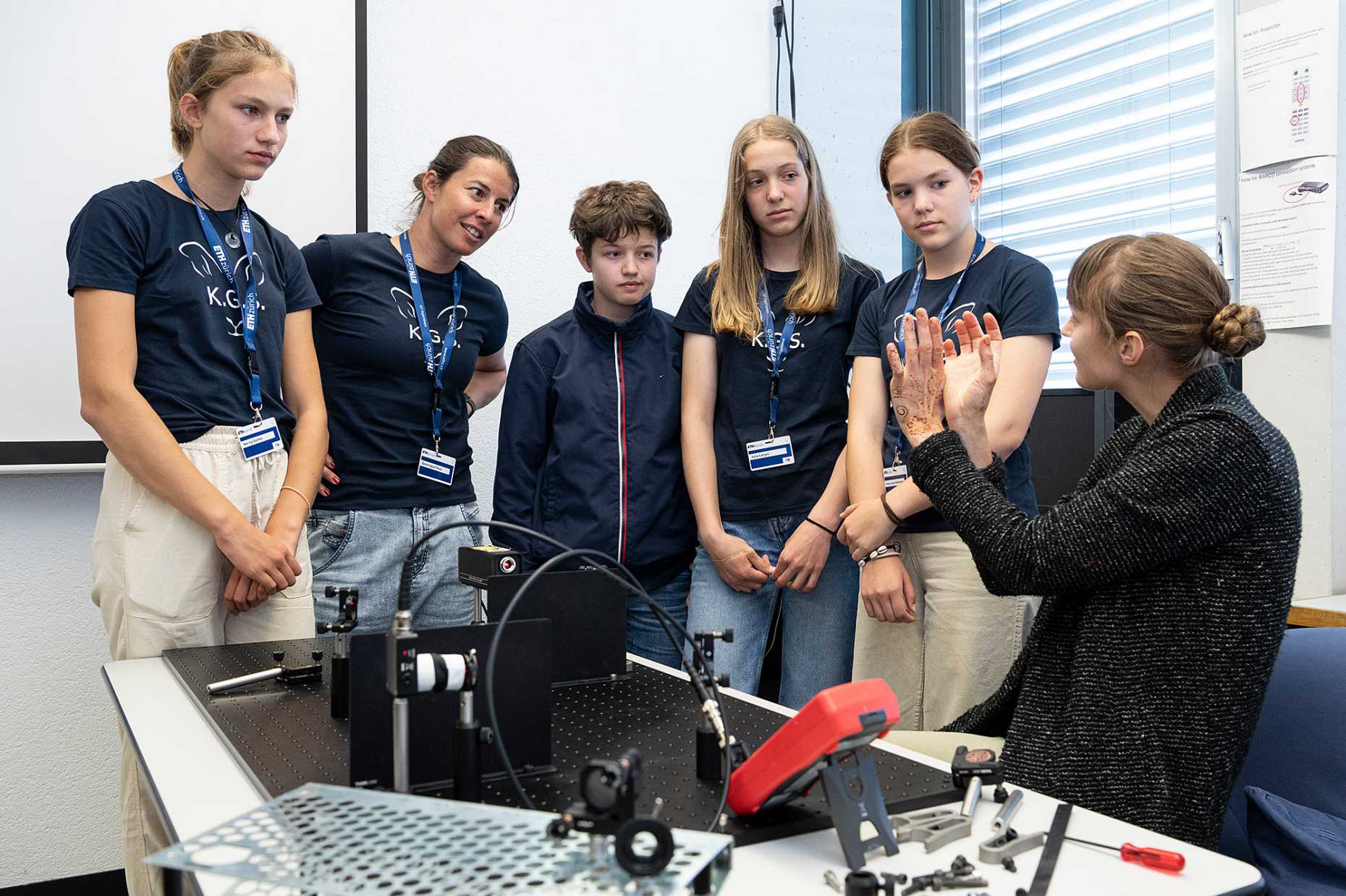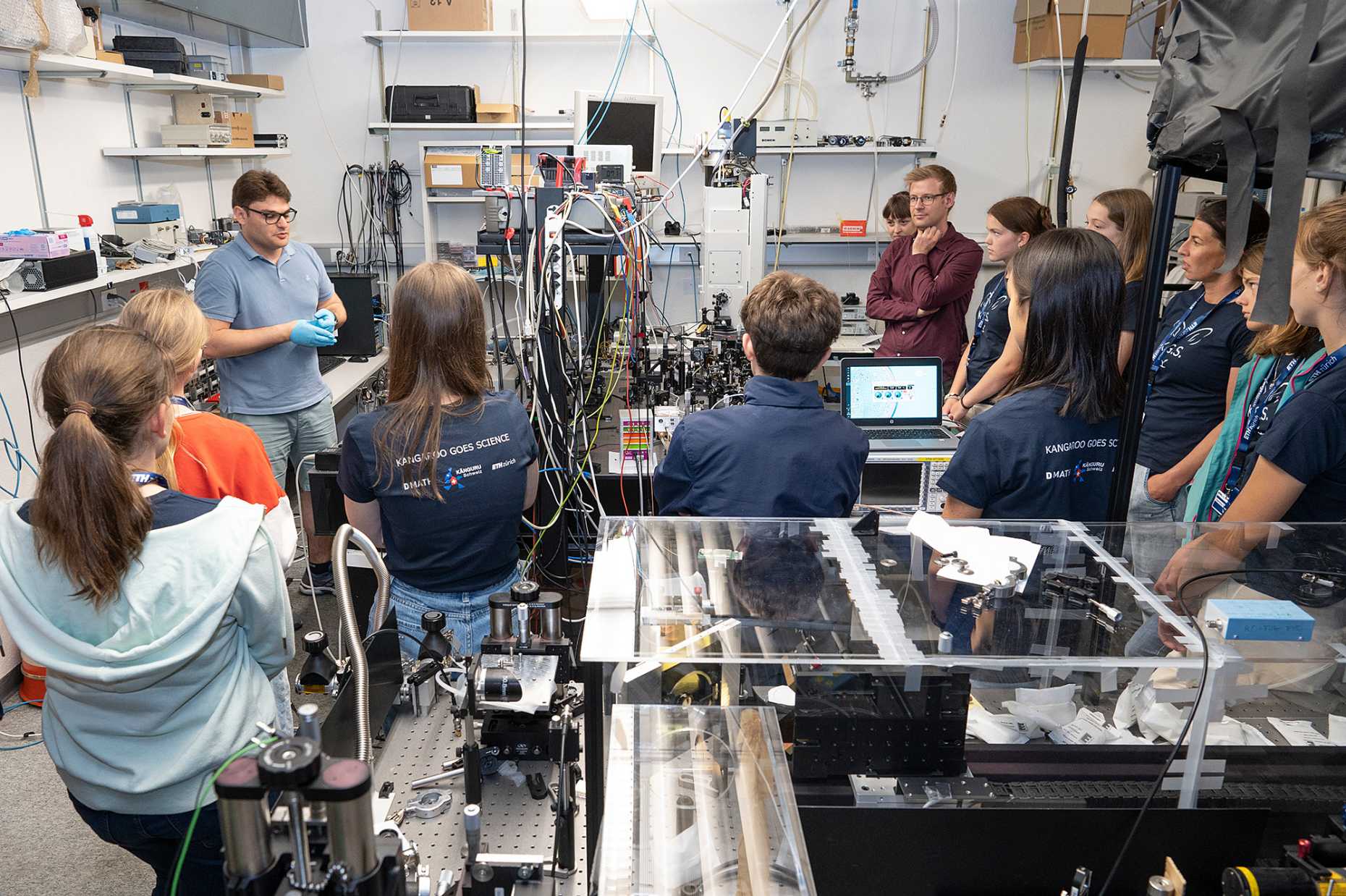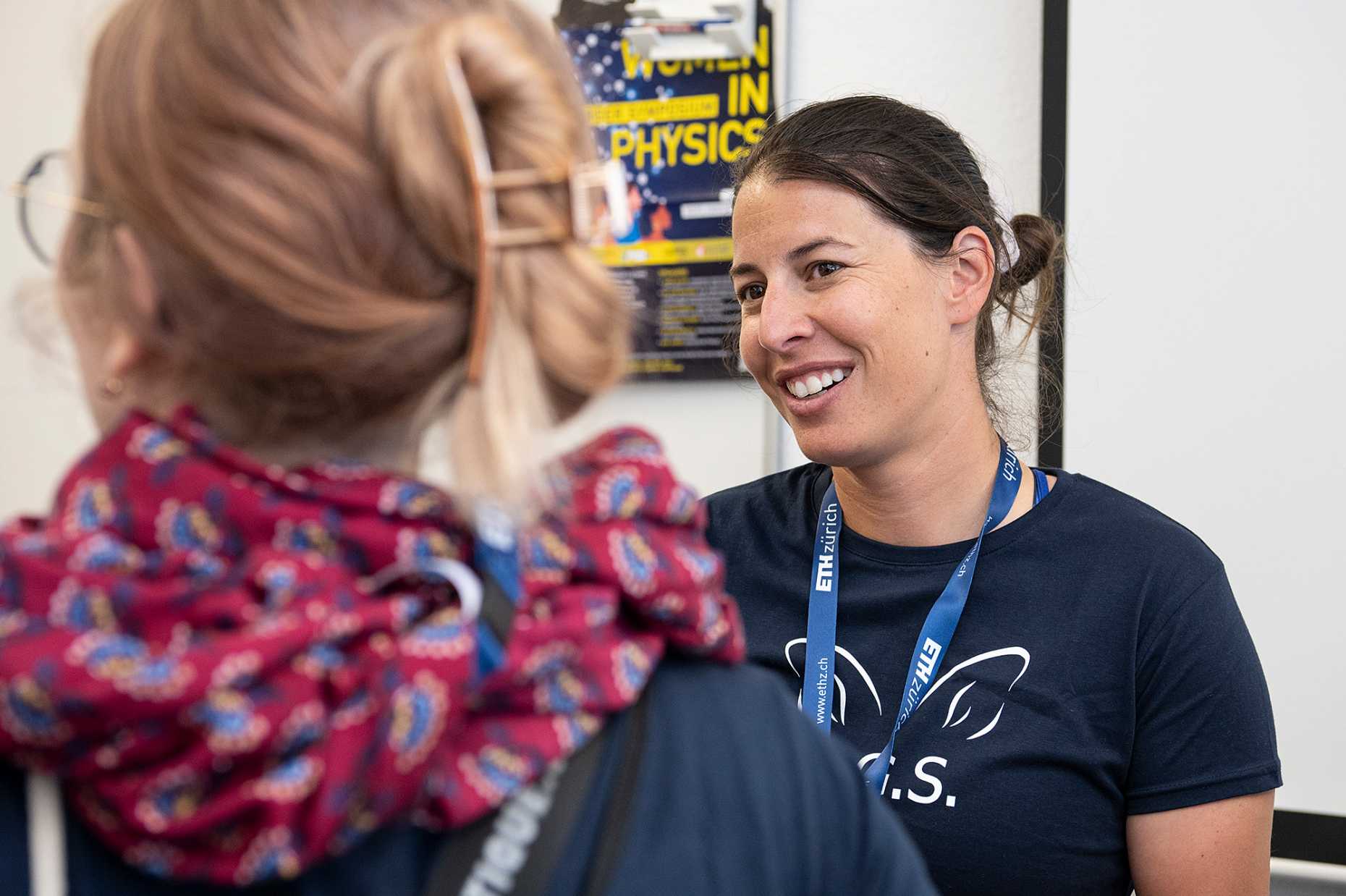Dominique Gisin at Kangaroo goes Science
The 100 best girls from the Kangaroo mathematics competition were given the opportunity to visit ETH on 9 June. Former ski racer and physicist Dominique Gisin accompanied the girls as a mentor. An interview with ETH's self-described "exotic" alumna.
The Mathematical Kangaroo is the world’s largest mathematics competition. Around 6 million 3rd to 13th graders from almost 100 countries take part. This year, the Department of Mathematics in cooperation with the Kangaroo Switzerland Association, ETH Zurich and 500 Women Scientists once again invited the 100 best Swiss girls from the competition to ETH. The Kangaroo goes Science event gives female 7th graders with an aptitude for maths a deeper insight into natural and engineering sciences.
On 9 June, the pupils travelled to the ETH Hönggerberg campus with their parents, where they were warmly welcomed by organisers Meike Akveld and Darcy Molnar. The morning programme comprised two lectures as well as three student presentations entitled "My journey to ETH". In the afternoon, the parents were provided with information about study options and enjoyed a tour of the campus. Meanwhile, the girls got to discover the university in small groups with a mentor and visited a laboratory and a maths workshop.
The CV of one mentor in particular certainly stood out: former ski racer and Olympic champion Dominique Gisin studied physics at ETH after retiring from skiing and is now actively involved in promoting girls' education. We spoke to her following an eventful day at Kangaroo goes Science:
Dominique, how have you found today’s event?
It’s been very impressive – particularly the presentations given by researchers. With my group, I visited a quantum electronics lab. After that, we solved the Königsberg bridge problem in a hands-on workshop. It was great to see only women at ETH just this once – the girls were delighted too.
In your presentation, you said that, at 29, you were the "granny" of your course. What was your experience of studying at ETH?
Due to my age and my career, I was seen as "exotic". It was very demanding and I found it hard to fit in. The first year at ETH was intense. But I also found that there is an advantage in coming to science from a different background. We need this diversity to solve the problems that exist.
What hurdles do you see for women in science?
When I told my mum that I was going to study physics, she said: "Oh no, those with the hoodies?!" There is prejudice, but I've always felt welcome at ETH. For me, it was a good thing that I started my studies later on. At the age of 29, you know who you are and what you want.
What motivates you to be a mentor with Kangaroo goes Science?
In physics and maths in particular, us women are in the minority. I think it’s great that we can network at events like this one. Even if there are just two or three women together, we can offer each other more support.
What can events like this do for the girls?
I have the impression that the reluctance to study at ETH is higher among girls than boys, as ETH is regarded as tough. Kangaroo goes Science is a really valuable way of breaking down this barrier and getting to know female students. If only one girl joins ETH later on, it has been worth it.
How could we make degree programmes such as physics and mathematics more accessible?
Teachers are the key. We have heard several times today that the students decided to study a STEM* subject at ETH because of an inspirational teacher. For me, it's important that we also reach girls and boys from families without an academic background. We can only do this with dedicated teachers who send their students to events like this one. Parents also have a central role to play. Many still ask: What can you do with physics? The possibilities are endless! That's why I thought it was great that the parents had their own programme today.
You have recently completed your Master’s degree in physics. What’s next for you?
I've had an amazing time studying physics. I completed my Master's thesis in a fantastic research group that is researching exoplanets. But science is like elite sport: you have to have a real passion for it and give it your all. I’ve done this once and once is enough! I’m now enjoying my varied life: I'm a pilot, give talks, help with the Swiss Red Cross in other countries and support my sister in her skiing career. I chose to study physics because I was interested in it and I've never regretted it. My time at ETH was an enriching experience for me.
*STEM: Science, technology, engineering, and mathematics
But science is like elite sport: you have to have a real passion for it and give it your all.Dominique Gisin



